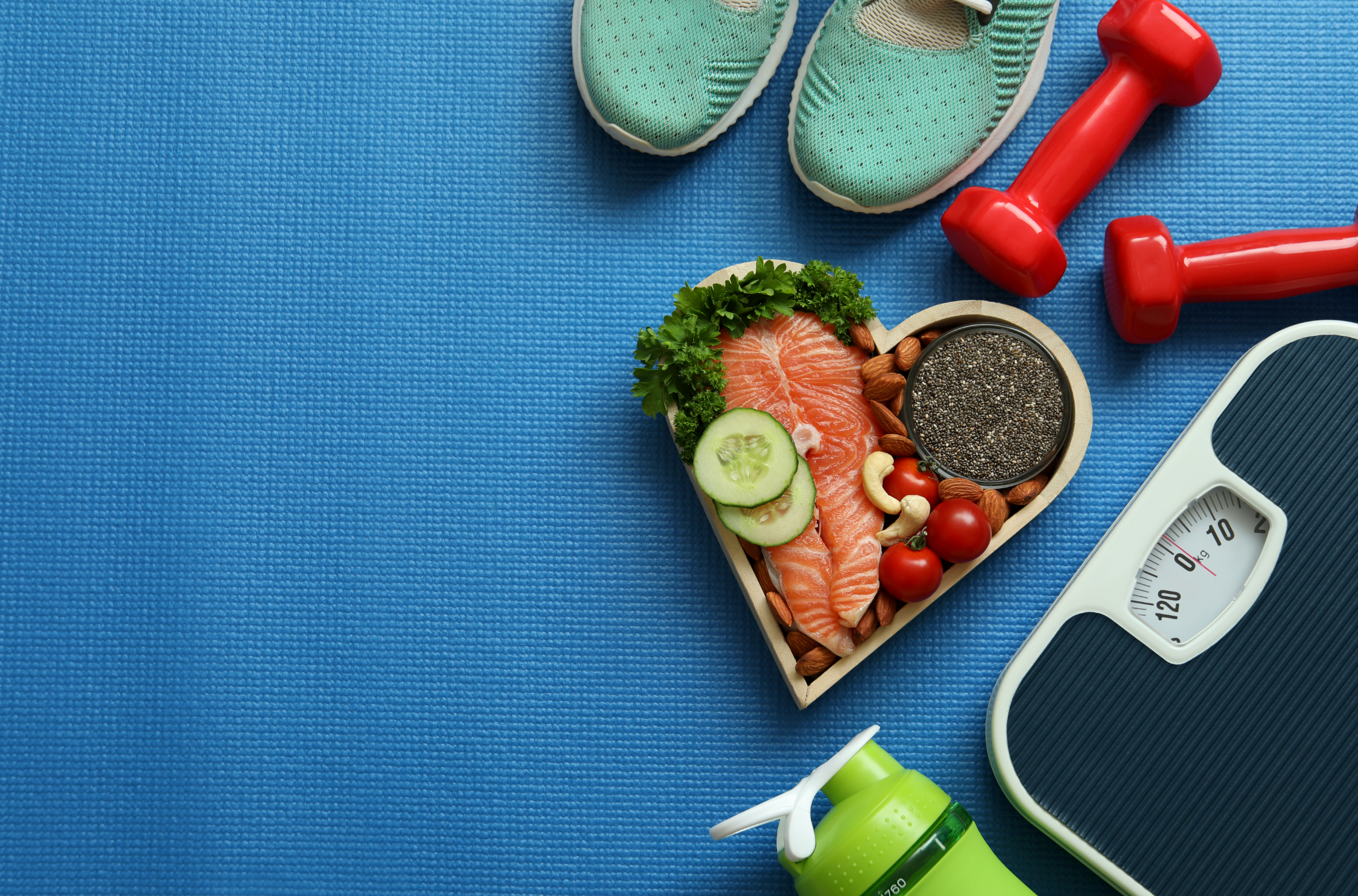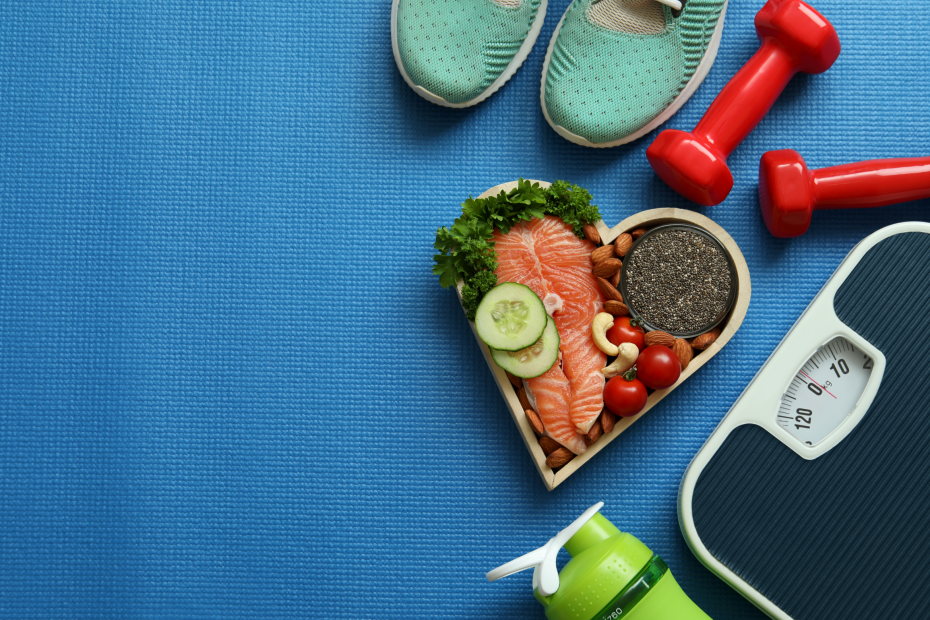We all have friends and relatives who have—how should we put it—unusual ideas about nutrition and exercise. Or maybe we have some of the more common ideas ourselves:
- Carbs make me fat.
- Healthy food is too expensive.
- I don’t have time to exercise.
Health researchers call these ideas myths.
We probably think these things because, in certain cases, they can be true: if we overindulge on simple carbohydrates like bread, potatoes, and pasta, we probably will gain weight. If we think we have to exercise for an hour or more every day, we may indeed have difficulty fitting it in.
And in terms of healthy food being expensive, it’s true that fresh fruits and vegetables, for example, can cost more than canned or frozen ones. But many of us aren’t eating a lot of fruits and vegetables to begin with; instead, we’re filling up on processed foods, which may be cheaper but are definitely less healthy. Plus higher amounts of sugar, salt, and fat in these foods may make us crave them, causing us— ultimately—to eat more of them (and thus spend more money) than we would have spent on fruits and vegetables to begin with!
Let’s look at a few more of the myths about nutrition and exercise that may be keeping us from being as healthy as we could be:
Nutrition Myths
- To lose weight I have to give up my favorite foods. Simply put, to lose weight you need to burn more calories than you take in. There are lots of ways to do this without giving up your favorite foods. You can eat less of the foods at a time (smaller servings). You can eat the foods less often. You can exercise more.
Giving up all your favorite foods or treats may make you feel deprived and less likely to stick to your weight-loss plan.
- Gluten is unhealthy. Gluten is a protein found in wheat, barley, rye and some other grains. Unless someone has celiac disease or a gluten sensitivity, gluten is not unhealthy for most people. Avoiding it when you don’t need to can make it harder to get important vitamins, minerals, and fiber. Additionally, gluten-free products are often much more highly processed and expensive than their gluten-containing counterparts.
- Dairy products are fattening and unhealthy. Unless you’re eating a pint of ice cream every day and getting no exercise, dairy products eaten in moderation should not be not fattening. Besides that, milk, yogurt, cottage cheese and other dairy products are good sources of protein and calcium, which are important for health.
What if I can’t drink milk? If you have difficulty digesting animal milk, soy milk or other plant-based milks that are fortified with calcium (and often vitamin D) may be better choices for you.
- Fat is fattening. As with the other items on this list, healthy fats eaten in moderation shouldn’t be fattening. What are healthy fats? Ones that are liquid at room temperature, like olive, grapeseed, and canola oil (also called unsaturated fats). Less-healthy fats are solid at room temperature (butter, lard, trans fat—these are also called saturated fats).
Does this mean I can never eat butter? No, it just means just that butter should be eaten sparingly. As a saturated fat, butter raises “bad” cholesterol levels and promotes chronic inflammation, increasing the risk of heart disease and stroke.
What about margarine? Margarine used to be made by forcing hydrogen into liquid oils, which made them solid (this process is what leads to fats being called “saturated” or “hydrogenated.”) But it also produced an unhealthy byproduct: trans fats. In 2018, the FDA banned partially hydrogenated oils from foods, so today’s margarine is healthier than margarine from the past. According to a 2021 study by the University of Minnesota School of Public Health, margarine today contains less cholesterol, saturated fat, and trans fat than butter does. When choosing a margarine, soft spreads in tubs and tubes are healthier than harder spreads in sticks.
Exercise Myths
Exercise has to be high intensity or for a long duration. Good news: You don’t have to run 10 miles a day to get beneficial exercise! The US Department of Health and Human Services recommends that adults get 150 minutes (2 hours and 30 minutes) of moderate-intensity physical exercise per week. This can be in the form of five half-hour jogs per week, ten 15-minute brisk walks, or fifteen 10-minute sprints, jumping jacks, and squats.
Pro Tip: Building exercise into your day can make it even easier to get the recommended amount—take the stairs instead of the elevator. Park farther away from work or get off one bus stop before your normal stop. Take a walk at lunch.
- Lifting weights will make you bulk up. Weight-bearing and resistance exercises—which force you to work against gravity—are important for keeping your bones strong. You won’t bulk up or unless you’re doing intense body-building. Building more energy-burning muscle will also help you control your weight better.
- Muscle weighs more than fat. A pound of muscle on a scale will read the same amount as a pound of fat—one pound. The reason we tend to think muscle weighs more is that it is denser. So a container filled with muscle will weigh more than an identical container filled with fat (the volume of the containers will be the same, the density of the muscle/fat will be different).
Fun fact: According to the Library of Congress, there are between 650 and 840 muscles in the human body (the reason for the difference is that complex muscles can be counted different ways). The strongest muscle based on weight is the masseter, or jaw muscle. It can exert 200 pounds of force on the molars!
The Bottom Line
Between having busy lives and maybe thinking a healthy lifestyle is too hard, most of us do not get enough exercise or eat enough healthy foods, such as fruits and vegetables. But that means that any change we can manage is a step in the right direction.
Sources:
American Heart Association (butter and bad cholesterol)
British Heart Foundation (dieting myths)
Library of Congress (muscles)
McGill University Office for Science and Society (evolution of margarine)
National Institute of Diabetes and Digestive and Kidney Diseases (nutrition, exercise myths)
University of Minnesota School of Public Health (margarine, butter study)
 share
share



